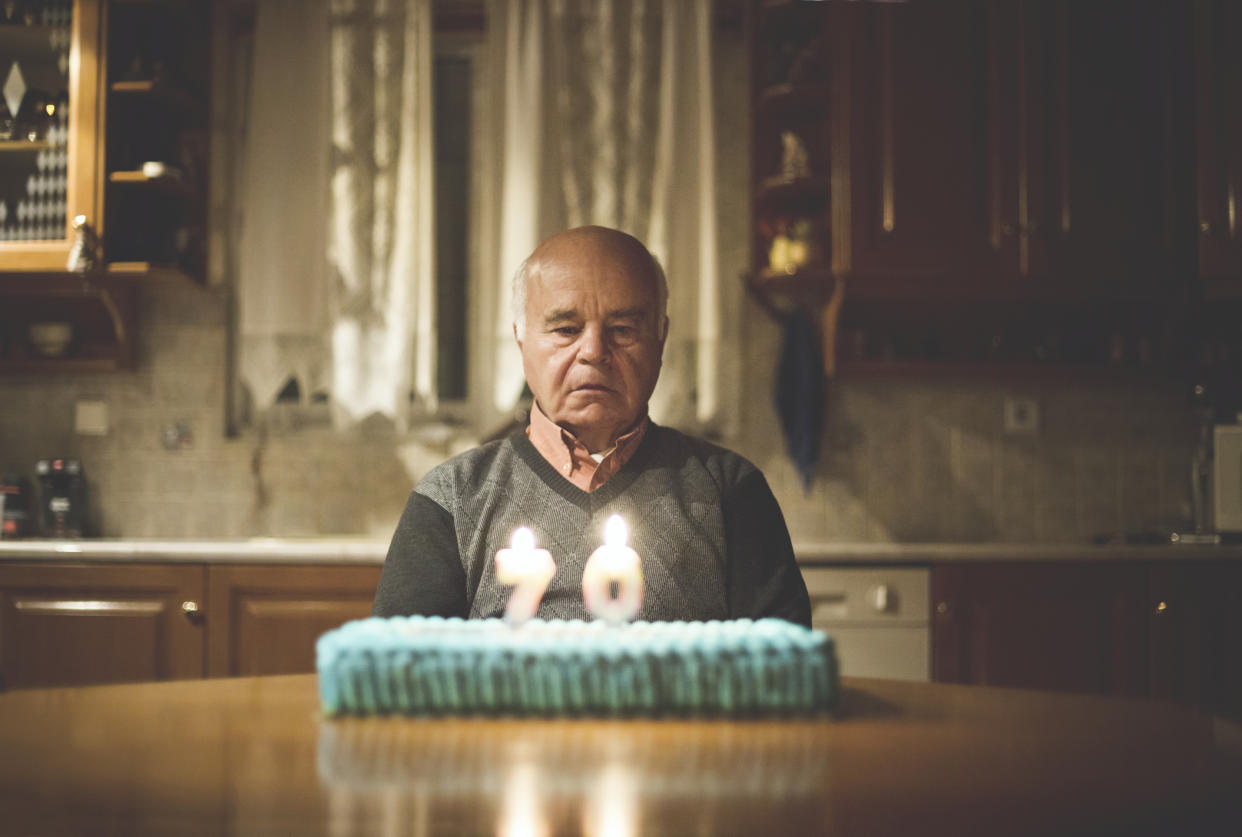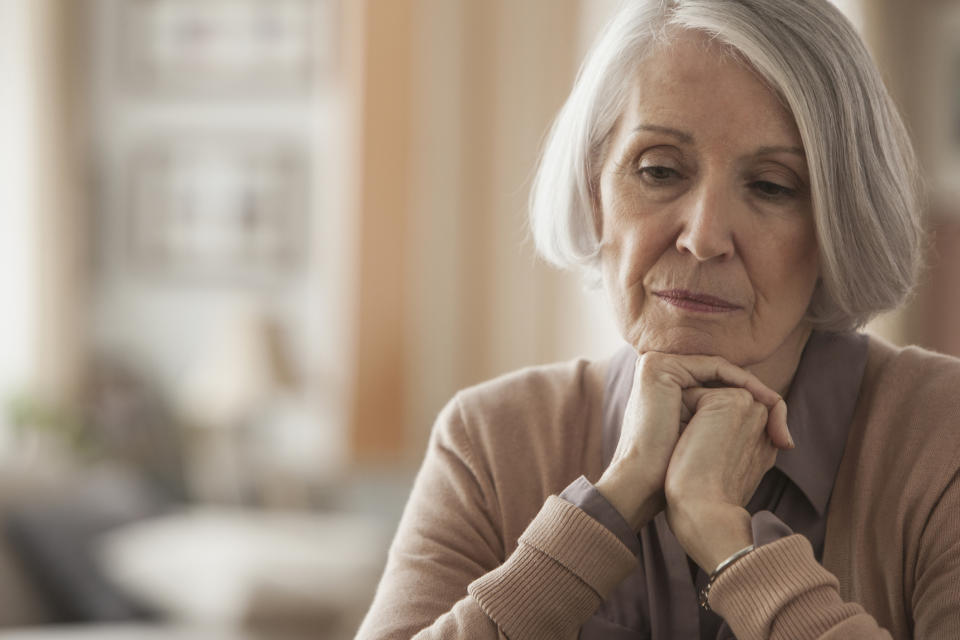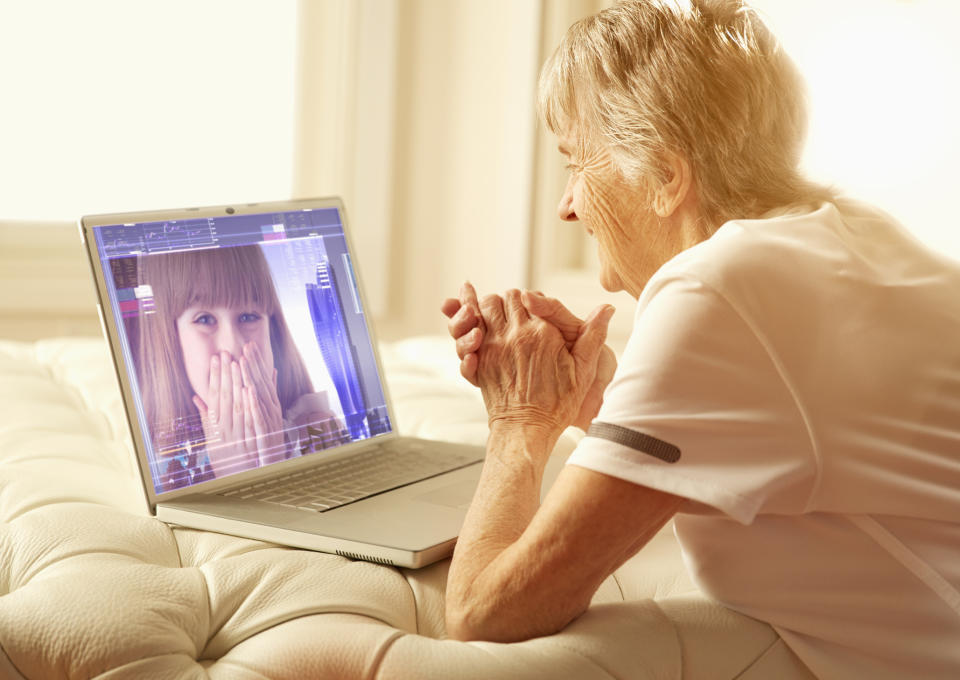'It's very hard to stay positive': How over-70s are reacting to the prospect of coronavirus self-isolation

When Matt Hancock announced on the Andrew Marr Show on 15 March that over-70s would be asked "within the coming weeks" to stay at home for an extended period to protect themselves from coronavirus, many of the 12 million people in this age group were left reeling.
Since then, the rest of the country has been sent into “lockdown”, but the call for over-70s to self-isolate has not yet arrived.
The World Health Organization has said self-isolation is currently “the most effective way” of preventing the potentially deadly virus from spreading.
But many people have raised concerns about the knock-on impact on those forced to stay home alone in terms of mental health, loneliness and accessing provisions.
Charity Independent Age surveyed 1,900 over 65s to find out how they were feeling about having to be locked away for so long.
Of those polled, 61% said they were feeling anxious or worried about the impact that the coronavirus could have on their lives.
A third said their contact with friends and family had been negatively impacted by coronavirus.
And 43% of those quizzed said they have found themselves unable to buy food or household items as a result of stock levels.
Latest coronavirus news, updates and advice
Live: Follow all the latest updates from the UK and around the world
Fact-checker: The number of COVID-19 cases in your local area
Explained: Symptoms, latest advice and how it compares to the flu
Morgan Vine, head of policy and influencing at Independent Age, said: “We want to ensure that the voices of people in later life are heard during the COVID-19 outbreak and response.”
Vine says elderly people are often left confused after receiving different information from different sources, which can undermine their efforts to protect themselves and others.
She said: “Another worrying finding is that 46% of respondents felt they had read, or been on receiving end of, negative language about older people in relation to coronavirus, particularly in the media.
“Older people are valuable members of our society, and any language being used to imply they should be dismissed, or are a burden is totally unacceptable and must stop.”

There are now real concerns surrounding the mental wellbeing of Britain's elderly population, particularly considering loneliness is widely believed to be a key contributor to a range of mental and physical health problems.
Studies have shown loneliness to be a driving factor behind conditions such as cardiovascular disease and stroke, chronic stress and anxiety, progression of Alzheimer's disease, depression and loss of memory.
Research from the Mental Health Foundation revealed that 17% of adults in the UK cite the lack of real-life communication as one of the key drivers of their psychological challenges, while research from Smart TMS found that 12% of people regularly go weeks or months at a time without having a proper conversation with anyone.
Throw in the prospect of an extended period of self-isolation and it’s not surprising the UK’s older population are feeling pretty worried right now.
How older people feel about self-isolating
Kath, who is over 70, has been finding it difficult being unable to see grandchildren or children.
She says being forced to cancel social gatherings has also left her feeling alone.
“It’s very hard to keep positive, but we’re better off than a lot of people, at least we have a garden and can go for walks if we are well enough,” she says.
Annie tells Yahoo UK she fears self-isolation could have a knock-on effect on her health.
“Though I understand the need to be responsible and stay safe, severe restrictions on my social interactions will adversely affect my life,” she says.
“Older people do need social interaction as isolation, loneliness and fear can have an adverse impact on our immune systems and ability to fight infections.”
Rose, who is also over 70, is a self-employed counsellor working from home and is concerned that having to self-isolate will impact her income.
“I am usually very involved in my community, including groups, choirs, but that is all cancelled now,” she says. “I have asthma so was already being very careful to 'distance' myself, but [the expected measures] have meant I’ve had to cancel my son's Easter visit, going on a retreat next month, and my summer holiday in France.”
Others say they’ve found it unsettling, believing the current situation could see them falling further down the pecking order when it comes to receiving treatment for coronavirus or other illnesses.
“I have read that I am in a high risk age group and I also have ongoing health problems and am extremely worried that if I catch this virus, I will become severely ill and possibly die,” Angie says.
“It has made me reluctant to go out of the house unless absolutely necessary and I therefore feel very alone and vulnerable and isolated.”
How to help
There’s little doubt the nation’s older generation are really feeling the strain right now, which is why it is so important we look after them as much as possible.
“It is certainly important to take the necessary precautions to protect one’s physical health given the circumstances surrounding the spread of COVID-19,” says Gerard Barnes, CEO of Smart TMS.
“But social isolation is one of the most impactful drivers behind the development of depression and other mental health problems, and can also have a significantly negative impact on one's physical health also.
“It is also more likely that the elderly in particular will suffer more seriously from the social distancing measures, as a greater proportion of the elderly population are less able to use technology and social media to maintain strong links and close contact with loved ones and friends.”

With that in mind, Barnes has some tips to help the elderly look after their mental wellbeing as they cope with social distancing and self-isolation.
Keep the conversations flowing
All non-essential contact with friends and family is banned, but conversations aren’t. “Staying in touch with your loved ones through social media, video calling or messaging is more valuable than ever,” says Barnes.
“For elderly relatives who may not be au fait with social media, we encourage regular phone calls in order to help them feel supported, connected and reduce their feelings of loneliness.
“Not being in close proximity to people can have a negative impact on your mood and energy levels, and it is therefore imperative that you maintain regular contact with loved ones to improve mood and make it easier to deal with these stressful and lonely times.”
Encourage them to stay active
“Exercise is one of the best ways to fight symptoms of mental health problems, and people who are less physically active are more at risk of anxiety and depression,” Barnes says.
“The prime minister has also announced that leaving your home to exercise outside is permissible, provided it is not in close contact with others.”
Barnes suggests encouraging older friends and relatives who live close to a park, forest, field or other open space to engage in a once-a-day walk or exercise outside.
“This will certainly reduce the feelings of cabin fever, improve mood and help people sleep better.”
Urge them to eat well and stay hydrated
Diet is vital to both your physical and mental health and maintaining a strong and healthy immune system.
“The better your physical condition and nutrition, the more prepared you will be to fight off any potential infections of your system,” advises Barnes.
“If your regular routine changes or you are less active than usual, your blood sugar levels are certain to affect your mood and energy levels, so be sure to encourage elderly relatives to eat healthily and drink enough water to ensure their body is in its best condition.”




